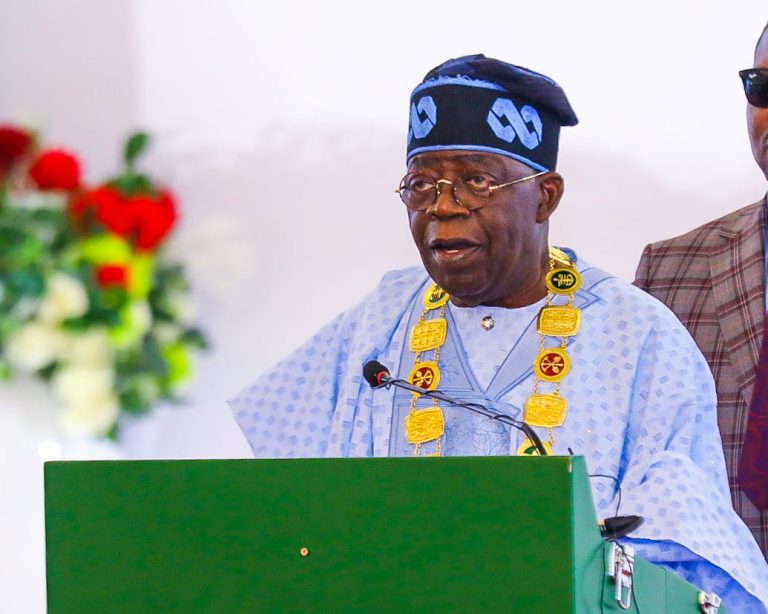President Bola Tinubu has emphasised that traditional rulers remain the strongest link between government and the people, and they must receive formal recognition within Nigeria’s governance framework. Represented at the meeting by Imo State Governor Hope Uzodinma, Tinubu made this statement during the National Council of Traditional Rulers of Nigeria (NCTRN) gathering on Monday in Lagos.
The session, themed “The Traditional Institution: The Imperative of Its Inclusion in the Effective and Efficient Governance in Nigeria,” brought together monarchs from across the country to discuss the constitutional significance of traditional leadership in modern governance.
Highlighting their ongoing contributions, Tinubu said, “Across the country, our traditional rulers carry out essential responsibilities that keep our communities united and functional; mediating conflicts, preserving culture, and maintaining order.” He noted that despite lacking constitutional backing, the traditional institution continues to play a vital role in fostering peace, cohesion, and stability.
Recalling history, Tinubu pointed out that traditional rulers had defined roles under Nigeria’s early constitutional frameworks, particularly the 1963 Republican Constitution, which granted them legislative participation. He added, “This is not a question of nostalgia but one of institutional continuity. Our royal fathers are still doing the work; what they need is formal recognition by law.” He lamented that subsequent constitutions of 1979 and 1999 failed to reinstate such recognition, leaving the institution to function informally.
The president encouraged the National Assembly to address the issue, noting that other African nations, including Ghana, South Africa, and Namibia, have constitutionally entrenched traditional institutions without compromising democracy. He stressed the institution’s role in Nigeria’s unity and stability, stating, “The marriage between governance and tradition is real. The only thing missing is the certificate.” Tinubu also advised monarchs to remain politically neutral, noting that their moral authority and public trust are essential to sustaining their influence and dignity.
In his welcome remarks, Lagos State Governor Babajide Sanwo-Olu expressed pride in hosting the assembly of cultural custodians. He highlighted the continued importance of traditional rulers in upholding the nation’s moral fabric, stating, “Long before modern governance took shape, our traditional rulers were the bedrock of stability and justice. Even today, no government can thrive without their support.”
Sanwo-Olu recalled the historical contributions of monarchs such as Oba Ovonramwen Nogbaisi of Benin, King Jaja of Opobo, and Chief Ogedengbe of Ilesha, who resisted colonial rule. He noted that military interventions had weakened traditional institutions, but democracy now offers a chance for their restoration. “Our royal fathers must continue to push for constitutionally backed relevance. Lagos will always support this cause,” he said, urging them to remain impartial and united. He added, “We must ensure that our traditional institutions remain inclusive, impartial, and aligned with the vision of a just and thriving Nigeria,” reaffirming his administration’s commitment to their welfare and dignity.
Sultan of Sokoto, Alhaji Muhammad Sa’ad Abubakar III, Chairman of the NCTRN, commended Tinubu for his dedication to national unity and expressed optimism that the meeting would strengthen the institutional recognition of traditional rulers. The Sultan also encouraged monarchs to continue promoting peace and security in their domains, emphasising that their collaboration with government is key to building a stable and prosperous nation.

